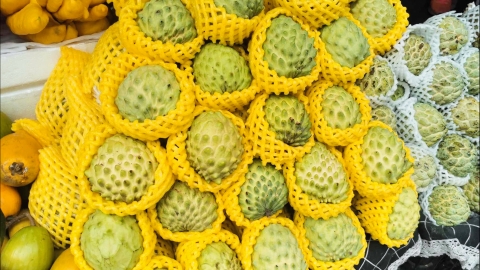Are the seeds of the sugar apple edible?
Generally, the seeds of the sugar apple (Annona squamosa) are not recommended for consumption. A detailed explanation is as follows:

The seeds of the sugar apple have a bitter and astringent taste and a hard texture, making them difficult to chew and swallow, thus leading to an unpleasant eating experience. Sugar apple seeds contain a substance called annonaceous acetogenins (or Annona esters), which has certain toxic properties. Ingestion may adversely affect the nervous and digestive systems, causing symptoms such as dizziness, nausea, vomiting, and abdominal pain.
The seed coat is hard and contains a large amount of cellulose, which is difficult for the human body to digest. Consumption may result in poor digestion and decomposition in the gastrointestinal tract, potentially causing gastrointestinal obstruction and serious harm to health. If the seeds are accidentally ingested, monitor for any physical reactions. If no discomfort occurs, there is generally no need for excessive concern; drinking more water may help promote metabolism and aid in expelling the seeds from the body.
When consuming sugar apple, ensure that only the pulp is eaten. Pay attention to the appearance and taste of the pulp. If discoloration (such as blackening), changes in taste, or abnormal odors are noticed, consumption should be stopped immediately, and any physical reactions should be monitored.





